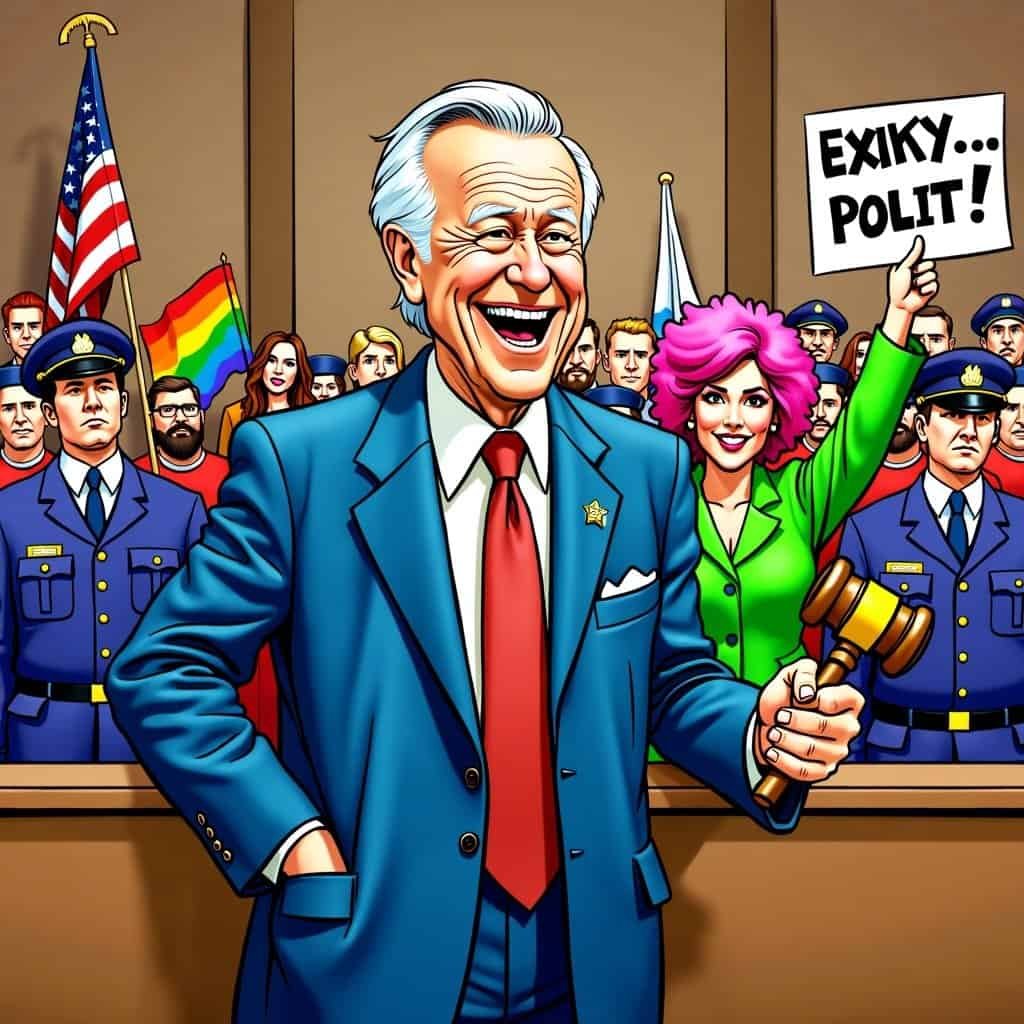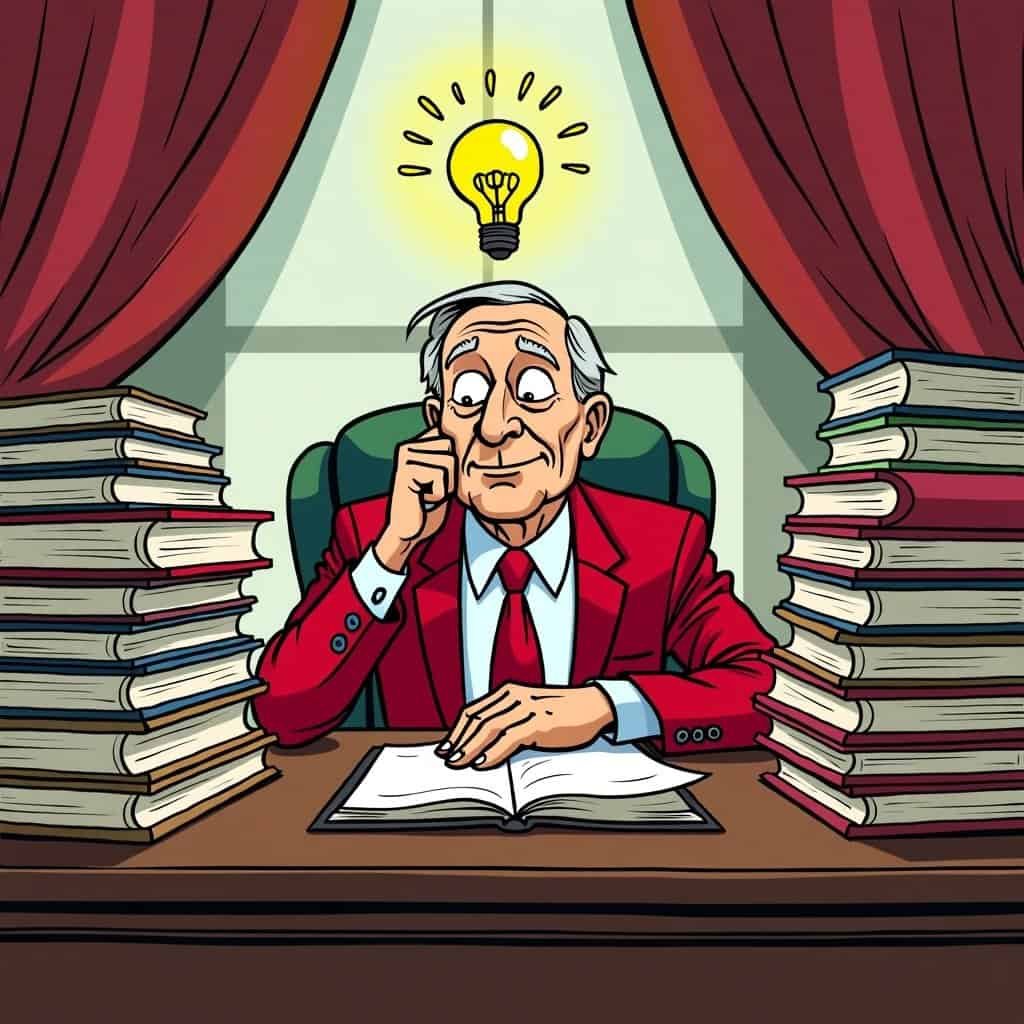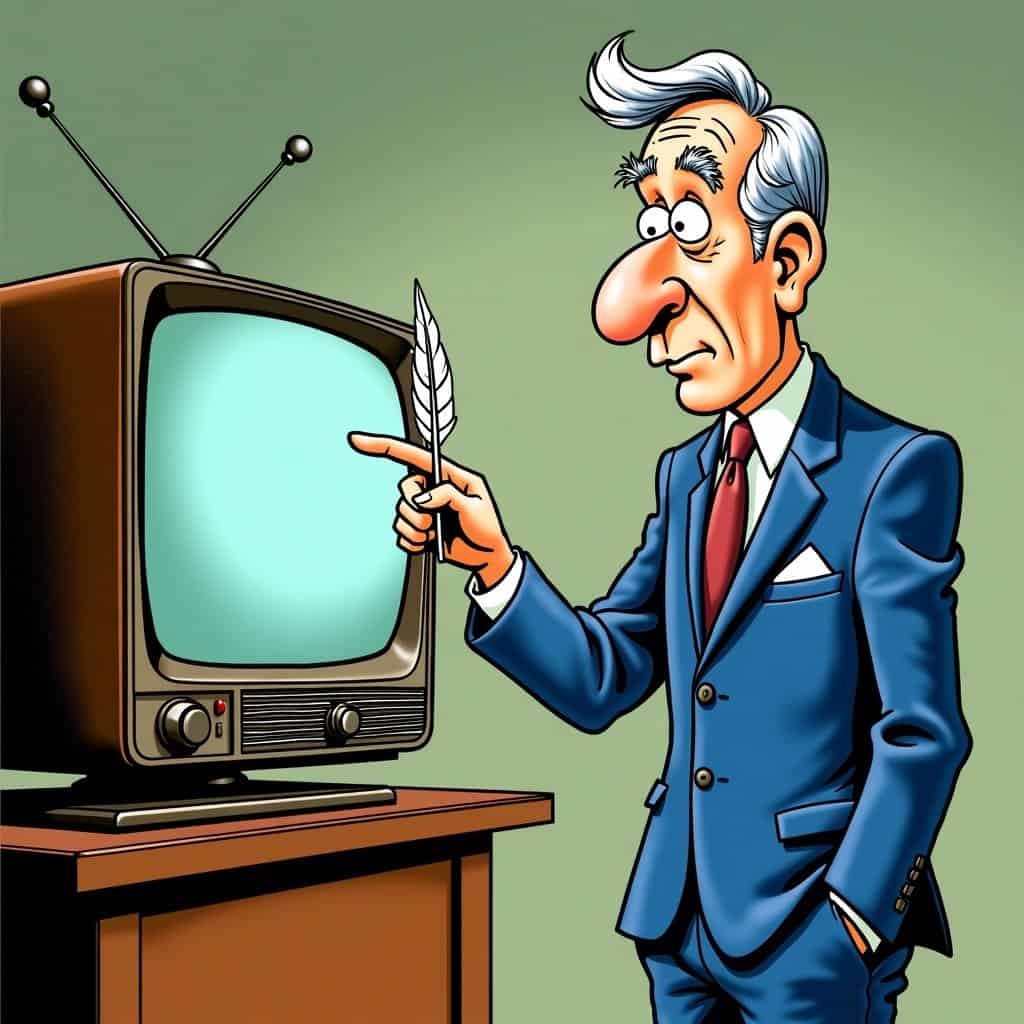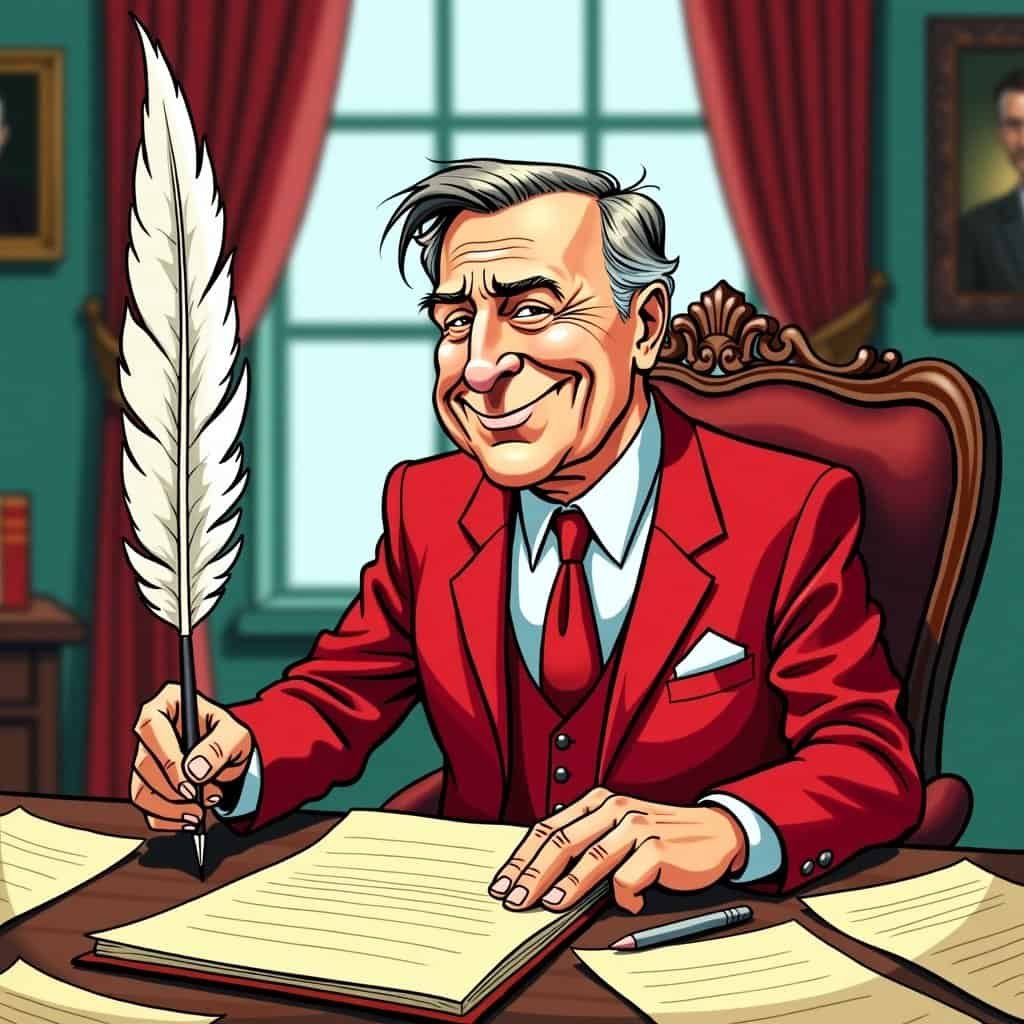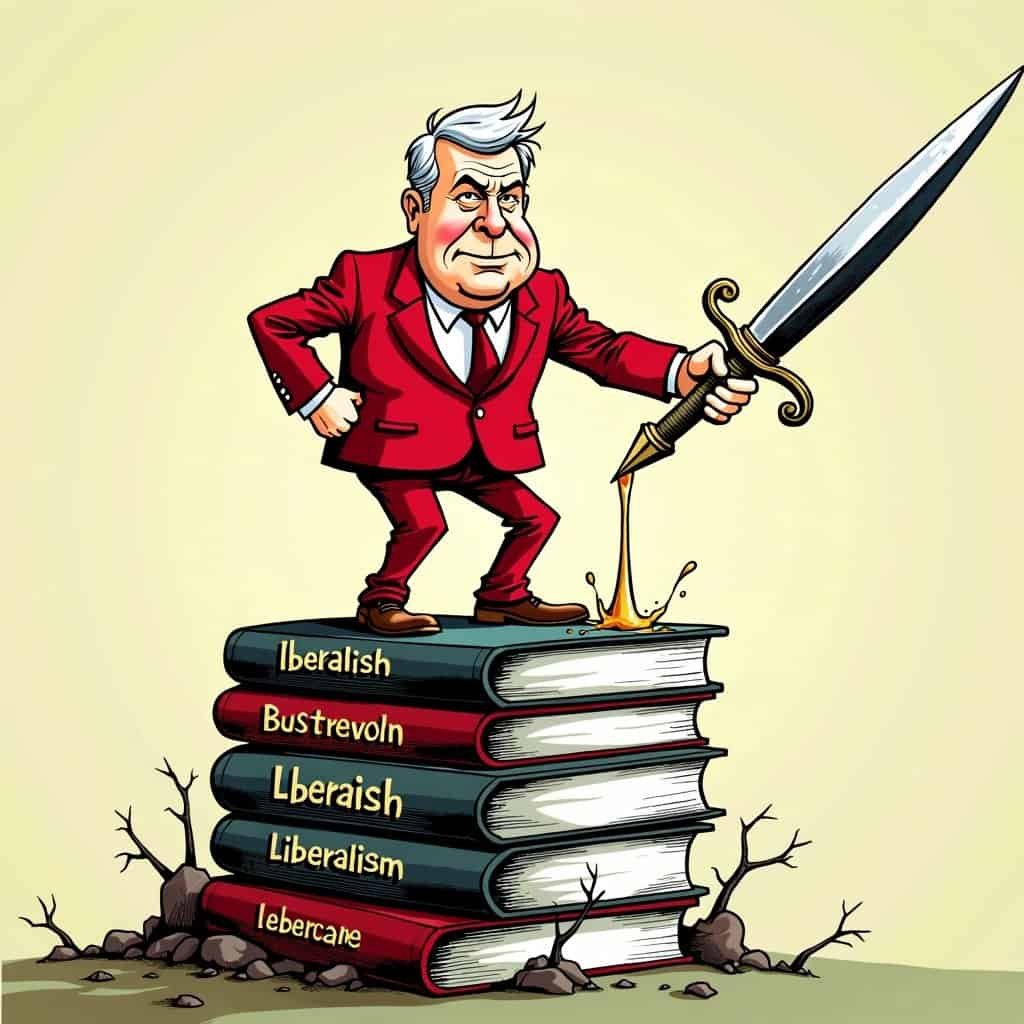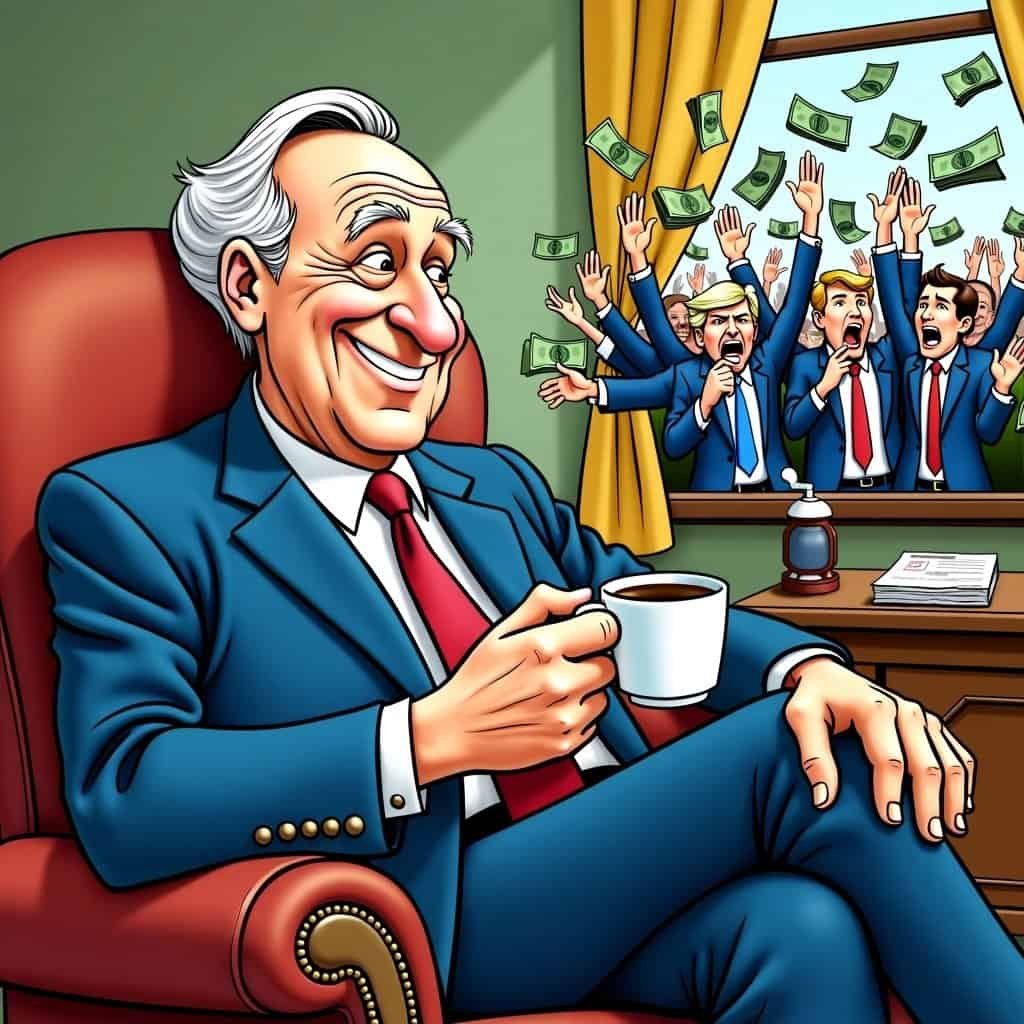Ah, William F. Buckley Jr., the sharp-tongued wordsmith who could slice through liberal arguments while nursing a glass of scotch and adjusting his cufflinks. If there’s one thing our dear Buckley championed, it was the defense of law and order. Now, picture his raised eyebrow at today’s progressive megaphones calling to defund the police. Buckley might have quipped: ‘You can’t fix what you don’t grasp.’
Buckley wasn’t one for mayhem, whether on the streets or in political debates. He recognized that a stable society rests on the sturdy foundation of a robust legal system and equally strong enforcement. Conservatives see it plainly: Law and order are freedom’s cornerstone. After all, you can’t exercise your First Amendment rights if you’re too busy ducking for cover, can you?
With his trademark wit, Buckley might have remarked, ‘Hosting a tea party in a war zone is a tad difficult unless you prioritize public safety.’ Conservatives, like Buckley, view law enforcement as the unsung heroes of civility, the covert agents of order. Without their behind-the-scenes efforts, society could quickly spiral into chaos.
The Progressive ‘Utopia’ Experiment
Ever watched progressives try to implement their ‘utopian’ vision of society? They charge in with their theories and jargon until, oops, someone gets hurt, and suddenly everyone’s scrambling back to law and order. Liberals love a good ideological parade but forget that the only thing standing between them and anarchy is a thin blue line. And that line gets awfully thin when celebrities and social media warriors make ‘defund the police’ their rallying cry.
A Historical Perspective
Let’s consider some historical context. Remember the ‘stop and frisk’ policies? Critics claimed it was unfair and targeted. But lo and behold, crime rates dropped. It’s a simple case of cause and effect, as predictable as sunrise. Buckley would likely nod in agreement; society thrives when lawbreakers fear consequences and law-abiding citizens respect those who enforce the rules.
Buckley’s Philosophy vs. Liberal Ideology
| Buckley’s Philosophy | Liberal Ideology |
|---|---|
| Emphasizes personal responsibility | Focuses on societal factors |
| Respects authority | Questions authority |
| Views law enforcement as a vocation | Sees law enforcement as problematic |
| Believes in consequences for actions | Advocates for rehabilitation over punishment |
Buckley’s philosophy aligns perfectly with conservative values that highlight personal responsibility and respect for authorities. He’d argue that law enforcement isn’t just a job, it’s a calling — one that holds together the fabric of civilized life. And as any Republican can attest, when that fabric starts to unravel, it’s the hardworking taxpayer who foots the bill.
On the flip side, liberal ideology aims to treat every offender with kid gloves. They believe if we just ’empathize’ with that troublemaker’s ‘personal story,’ he’ll magically transform into a model citizen. Conservatives, armed with common sense, know better. Actions have repercussions, and sometimes those repercussions are best experienced behind bars where society is protected.
Buckley on Progressive Naiveté
Buckley would chuckle at progressive naiveté, arguing that they inhabit a detached fantasy world — one where criminals are just misunderstood artists and police are the villains. He’d probably light up a cigar and record a witty Firing Line episode exposing the absurdity.
Now, regarding the bloated yet flawed criminal justice system, conservatives understand that reform doesn’t mean scrapping the system but improving it. Shouting for change without concrete solutions? That’s liberalism in a nutshell. Conservatives base their decisions on facts and logic, knowing that the first step in helping victims is ensuring there are fewer future criminals to begin with.
Conclusion
To tie this up with a neat conservative bow: William F. Buckley Jr. valued the role law enforcement plays in maintaining a nation’s peace and integrity. The foundation of our society, law and order allows freedom to flourish. Without it, all those liberal sweet-talking promises crumble faster than you can say ‘tax-and-spend.’
Buckley’s defense of law and order boils down to respect; respect for rules, respect for officers, and respect for a well-ordered society. So, the next time you hear a progressive wax poetic about ‘reimagining’ the police, ask yourself, ‘What would Buckley say?’ And then, take solace in the timeless wisdom of conservative principles, which never lose their shine.
Table of Contents
- The Progressive ‘Utopia’ Experiment
- A Historical Perspective
- Buckley on Progressive Naiveté
- Conclusion
